Unravelling the effects of the Kurdish referendum in the Middle East
In the era of overshadowed states, stronger regional organisations and non-state actors, the Kurdish Independence referendum in Northern Iraq on September 25 has shaken the Middle East this year. Mixed reactions and a climate of uncertainty left regional and global players speculating as to what the future might be in the region.
Beyond any personal views on the matter, the current article does not intend to legitimise or condemn the independence movement of the Kurds in Northern Iraq. In contrast, the aim is to uncover the implications and risks involved for the regional stability and beyond, if a Kurdish state in Northern Iraq could trigger a pan-Kurdish revolution in the Middle East.
Before we proceed with the analysis of the referendum, a quick overview of the ethnic profile of the Kurds will help us to better understand their motive for independence and spot any similarities among them that reveal an underlying pattern of greater integration and cohesion of the Kurdish nation.
Kurds, a profile check
Kurdish people constitute the fourth largest ethnic group in the Middle East. In the absence of statehood, Kurds have been victims of the political and cultural repression in their country of residence. Today, they are split between four countries – Turkey (14 million), Iran (6 million), Iraq (5 million) and Syria (2 million). Despite their cultural and linguistic background, there are noticeable political differences among them.
Based on the country of residence, each Kurdish group is led by different political parties and corresponds to different goals. First of all, the Turkish Kurdish Workers Party (PKK) has played a dominant role in the political representation of the Kurdish minority in Turkey; its secession attempts have caused an on-going rivalry between the Kurdish party and the Turkish government. Similar to PKK’s ideology, the main Kurdish party in Syria – the Democratic Union Party (PYD) seeks autonomy for Syrian Kurds and holds close ties with its Turkish Kurdish counterparts. On the anti-ISIS war in Syria and Iraq, its armed wing – the People’s Protection Units (YPG) – fought alongside Peshmerga and the US-coalition forces. Finally, there are two main Kurdish parties in Iraq; the Kurdistan Regional Government (KRG) and the Patriotic Union of Kurdistan (PUK). Today, the Kurdish community of northern Iraq is an autonomous region; self-governed by its own parliament, president – current president is Massoud Barzani, the leader of KRG – and military forces, known as Peshmerga.
The quest for a Kurdish state
The dream for an independent Kurdish state goes back in the early 20th century. It was after the fall of the Ottoman Empire when the western allies made a promise to the Kurdish community for a homeland (Treaty of Sevres 1920). Soon, this plan was abandoned. With Kurds left stateless and divided, a new treaty (the Treaty of Lausanne) replaced ‘Kurdistan’ with a strong Turkey led by Kemal Ataturk and borders reaching where modern Turkey is today.
Within the next eighty years, Kurds continued to fight for an independent Kurdistan. In Turkey, the Kurdish leader and founder of PKK Abdullah Ocalan attempted but failed to hold an independence referendum. Since then, a conflict started between the Turkish authorities and the Kurdish party. Despite the recent ceasefire in 2013 – with Kurds stepping back on their goal for an independent state and the Turkish government agreeing to grant more freedom to the Kurdish community, hostility is still prevalent. In addition, the ongoing war against ISIS sharpened Turkey’s insecurities. The united fight against the jihadists brought PKK and its Syrian counterparts closer, a fact that poses an immediate threat to Turkey as it could reignite the flame for a new Kurdish state.
In Northern Iraq, it was a logical corollary of the autonomous region to seek sovereignty for its people. Since the first Gulf War, Kurdistan has been a semi-autonomous region. After the fall of Saddam Hussein, the Iraqi Kurdish leaders have worked intensively for their right to self-determination with the ultimate goal of their independence. It was then that the Kurdistan Region was granted political and economic autonomy by Iraq’s constitution. On September 25, the Iraqi region of Kurdistan called for a referendum that would determine its future status with Iraq. Despite the opposition of the Iraqi government, the referendum was held in the autonomous region of Kurdistan and the territory obtained from ISIS including Kirkuk. In the announcement of the results, 90% of the voters showed their strong backing for the secession of the autonomous area from Iraq.
Scepticism and mixed feelings over the Kurdish referendum
In spite of the successful result of the referendum, everything indicates that it was not the right move at this particular moment. First and foremost, Barzani miscalculated Iraq’s quick reaction and ignored the US warnings to start talks with Baghdad before the referendum. Encouraged by the internal chaos in Iraq, Barzani rushed the date of the referendum in his effort to establish a de facto independent Kurdistan and ‘’limit Baghdad’s readiness to dissolve the Kurdish autonomous region’’ (Strachota and Lang, 2017). As a response to Barzani’s initiative, the Iraqi Prime Minister Haider al-Abadi ordered the armed forces to retake control in disputed areas. This caused Kurdistan to lose territory in rich-oil areas and control over the strategic city of Kirkuk. On top of that, recent scandals for corruption and dysfunctionality inside KRG’s party eroded the credibility of Barzani’s leadership as a democratic and trusted US ally. In contrast, Abadi’s successful efforts to rebuild Iraq win over Washington’s trust.
For the Iraqi government, Kurdish independence is seen as a threat to its sovereignty. A possible breakaway will not only reduce the Iraqi territory but will also weaken its social, political and economic cohesion. As a result, a weak Iraqi state would become the epicentre of internal disputes between Sunnis and Shiites; the effectiveness of the Iraqi army would decline without the participation of the Kurdish Peshmerga; a stronger Turkish-Kurdish partnership would undermine the Iraqi economy. The very same concern share Turkey and Iran, as they fear the resurgence of the Kurdish nationalism –the large number of Kurdish populations that reside in their territories.
For Turkey, the vicinity of a Kurdish state to the Turkish borders carries the danger of flaring up similar demands from its Kurdish community. However, its relationship with KRG has grown significantly as a counter-weight to the deteriorating Turkey-Iraq relations. Not only KRG has turned to become the second most reliable oil export and commercial partner for Turkey, but also a balancing force for regional stability. The active role of the Kurdish Peshmerga in the anti-ISIS war added more security to the Turkish borders. Moreover, the alliance with KRG could bring closer Turkey with its Kurdish community and Syrian Kurds.
Finally, Iran appears more divided and sceptical of an independent Kurdish state. While the endorsement of a new state could trigger the internal revolt of its Kurdish community, it could also have some benefits for Iran. First, KRG could act as a countervailing force to a new ISIS expansionism. Second, the Kurdish natural resources make an ideal investment opportunity in energy-based industries. On the other hand, an anti-Kurdish opposition will hurt the Kurdish-Iranian economic partnership; to a greater extent, it will precipitate the US reaction with the nuclear deal being at stake.
Searching for a peaceful solution
After this analysis, it is apparent that for the Iraqi Kurds the autonomy status is not sufficient and will continue to fight for their independence. Before reaching a de facto independence, the Kurdish leadership should take into account some important parameters.
The first step for a successful statehood is the external recognition of the new state and the maintenance of good relations with its allies. For this reason, the Kurdish leadership will need to rewarm its relations with the US and its neighbours; especially those with Kurdish minorities in their territory. Certainly, the absence of a pan-Kurdish vision in KRG’s agenda can provide the basis for peacekeeping in the Middle East and put an end to the Kurdish revolution scenario.
Second, the new state will have to negotiate its secession status from the parent state. A bilateral agreement is necessary for a peaceful secession that will consolidate their borders and the framework of their future relationship. Therefore, Erbil needs to restore as soon as possible its relations with Baghdad and prevent the outburst of a new conflict. Inevitably, an unresolved conflict will be detrimental to both sides. To make matters worse, the current Mid East crisis may drag other trans-regional powers in the area¹; undoubtedly, their involvement will result in the escalation of the conflict.
Third, the maintenance of good bilateral relations can profit both Iraq and Kurdistan on security and financial level. The continuation of the cooperation between the Iraqi army and the Kurdish Peshmerga will strengthen their defence system against external threats. Financially, a strategic economic partnership will help Baghdad and Erbil to fight internal corruption and leverage the oil resources available in the region. In fact, crude oil has been the main resource of revenue for Iraq and Kurdistan. Consequently, future tensions will only hurt their economies by disrupting their oil production capacity. To reaffirm this position, last month tensions have already caused serious drops in the Kurdish crude flows by 30% – especially after the recapture of the Kirkuk area from Iraq’s forces. Conversely, a stable and peaceful environment will attract more investors in the area and will boost the credibility of the Iraqi and Kurdish oil production in the global energy market.
Conclusions
In the short-term, Kurdish independence does not seem to be a viable scenario. Marking the events of October 16th – with Iraqi forces capturing disputed territory from Kurdistan, Abadi demanded the annulation of the referendum arguing its constitutional correctness. Due to fears of a further escalation of the conflict, Barzani is already considering the option to freeze the referendum results. In the long run, the firm message of the Kurdish people asking for independence on September 25th cannot be ignored. Eventually, Iraqi Kurds will declare their secession from Iraq. Based on the willingness or the reluctance of Erbil and Baghdad to cooperate, the consequences for the regional stability will be immediate.
Both the Iraqi and the autonomous Kurdish region will need to make concessions so that a common solution can be reached. Unresolved issues regarding disputed areas and access to rich-oil areas will only intensify the hostility between Erbil and Baghdad. If carefully planned, a mutual agreement between Iraq and Kurdistan will benefit the regional and global stability. Currently, Iraq needs to focus on its economic and social reconstruction. In parallel, KRG will need to restore its relations with the United States. With the attention of the US drawn to the fight of ISIS and the crisis in Syria, Kurds may have felt left out and decided to ignore the US warning to delay the referendum. Yet, hasty and unilateral decisions will only lead the Kurdish side to isolation.
The wear of the Iraqi government and economy from the ongoing war with ISIS will work in favour of the Kurdish side; therefore, its internal challenges will hinder Iraq’s future economic or military actions to oppose a future Independence.
Photo: Levi Clancy, Kurdish flags at the pro-Kurdistan referendum and pro-Kurdistan independence rally at Franso Hariri Stadiu (2017). Source: (Wikimedia) | (CC BY-SA 4.0)
Footnotes
[1] The involvement of trans-regional powers:
A war between Irbil and Baghdad will draw other countries in the conflict that will automatically escalate the dispute. For instance, the United States has officially supported the Iraqi Kurds while Russia has been on Iraq’s side
Bibliography
Bains E. (2017) Iraq must act now to rebuild social cohesion, MEED Business Review, 2(8): 46-47, Available at: https://www.ebsco.com (Accessed 26th October 2017)
BBC (2017) Who are the Kurds? BBC News, 31st October, Available at: http://www.bbc.co.uk/news/world-middle-east-29702440 (Accessed 14th November 2017)
BBC (2017) Iraqi Kurds offer to ‘freeze” independence referendum result, BBC News, 25th October, Available at: http://www.bbc.co.uk/news/world-middle-east-41744376 (Accessed 16th November)
Chmaytelli M. (2017) Iraqi forces, Kurdish Peshmerga agree on ceasefire, Kurdistan says, Reuters, 27th October, Available at: https://www.reuters.com/article/us-mideast-crisis-iraq-kurds-ceasefire/iraqi-forces-kurdish-peshmerga-agree-on-ceasefire-kurdistan-says-idUSKBN1CW1LG (Accessed 19th November 2017)
Giovanni D. J. and Slater S. (2016) Abandonment Issues, Will the battle of Mosul lead to an independent Iraqi Kurdistan? Or another American betrayal? Newsweek Global, 167 (16): 16-18, Available at: https://www.ebsco.com (Accessed 13th November 2017)
House of Commons (2015) ISIS and the sectarian conflict in the Middle East, Research Paper 15/16, Available at: http://researchbriefings.files.parliament.uk/documents/RP15-16/RP15-16.pdf (Accessed 27th October 2017)
Khraiche D. and Abu-Nasr D. (2017) Iraq Orders 24-Hour Ceasefire in Areas Disputed With Kurds, Bloomberg, 27th October, Available at: https://www.bloomberg.com/news/articles/2017-10-27/iraq-halts-military-operations-in-areas-disputed-with-kurds (Accessed 16th November 2017)
Mansour R. (2017) The Kurdish referendum backfired badly. Here’s why, The Washington Post, 25th October, Available at: https://www.washingtonpost.com/news/monkey-cage/wp/2017/10/25/the-kurdish-referendum-backfired-badly-heres-why/ (Accessed 15th November 2017)
Nader A., Hanauer L., Allen B. and Scotten G. A. (2016) Regional Implications of an Independent Kurdistan, RAND Corporation, Santa Monica California, Available at: https://www.rand.org/pubs/research_reports/RR1452.html (Accessed 26th October 2017)
Rascouet A. (2017) Iraq’s Kurdistan Oil Payments at Risk Over Independence Tensions, Bloomberg, 10th November, Available at: https://www.bloomberg.com/news/articles/2017-11-10/iraq-s-kurdistan-oil-payments-at-risk-over-independence-tensions (Accessed 16th November 2017)
Richards R. and Smith R. (2015) Playing in the sandbox; state-building in the space of non-recognition, Third World Quarterly, 36 (9): 1717-1735, Available at: https://curve.coventry.ac.uk/open/file/089cf189-50da-432a-96eb-43465cdb4621/1/Statebuilding.pdf (Accessed 13th November 2017)
Strachota K. and Lang J. (2017) Iraqi Kurdistan – the beginning of a new crisis in the Middle East? OSW Commentary, Available at: https://www.osw.waw.pl/sites/default/files/commentary_247.pdf (Accessed 26th October)

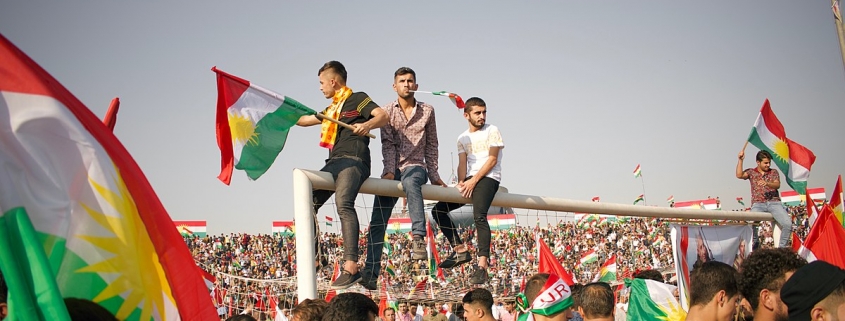
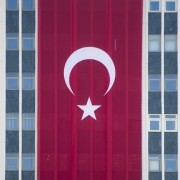
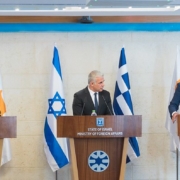
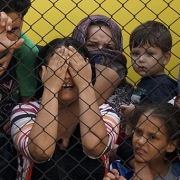
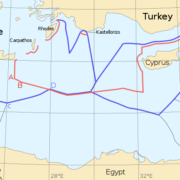
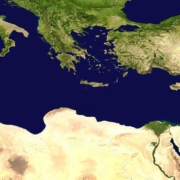



Leave a Reply
Want to join the discussion?Feel free to contribute!